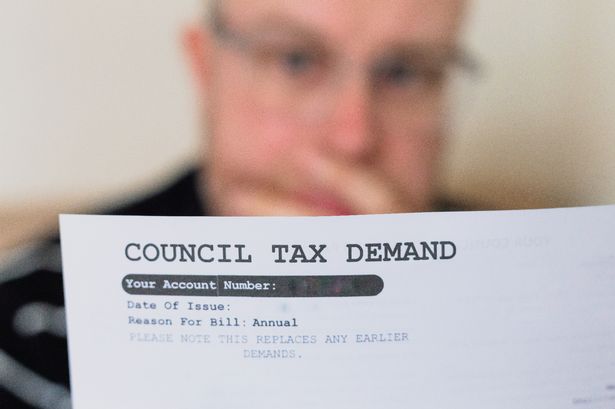
News
September 30, 2025
Scots could have council tax debt written off under plan to help struggling families
Households in Scotland are chased for missed local authority payments for up to 20 years - despite the equivalent rule in England being just six years.
**Scots could have council tax debt written off under plan to help struggling families**
A significant disparity in council tax debt recovery between Scotland and England could soon be addressed, offering a lifeline to struggling families north of the border. Currently, Scottish councils can pursue unpaid council tax debts for up to two decades, a stark contrast to the six-year limit enforced in England. This lengthy period of recovery can leave families burdened with long-term financial stress and difficulty escaping cycles of debt.
The extended recovery period means that even small initial debts can balloon over time, compounded by interest and fees. Many households face the daunting prospect of dealing with debts that have accumulated for years, impacting their credit scores, ability to secure loans, and overall financial well-being. For families already struggling to make ends meet, the pressure of these long-standing debts can be overwhelming.
The potential change aims to align Scotland with England's more lenient system, offering a fresh start to those trapped under the weight of council tax arrears. While details of the proposed plan remain to be fully clarified, the core objective is to provide a pathway for eligible households to have their older council tax debts written off.
Advocates for the change argue that the current system is unduly harsh and disproportionately affects low-income families. They emphasize that allowing debts to linger for twenty years does little to improve collection rates and instead perpetuates financial hardship. A shorter recovery period, they believe, would be more effective in encouraging responsible financial management while providing a more humane approach to debt recovery.
The move has been welcomed by consumer advocacy groups and anti-poverty campaigners, who have long argued for a fairer system. They believe that writing off older debts would not only alleviate financial pressure on vulnerable households but also stimulate local economies by freeing up resources for essential spending.
The proposal is expected to undergo further scrutiny and debate, with discussions likely to focus on eligibility criteria, the potential impact on council revenues, and the mechanisms for implementing the debt write-off program. However, the prospect of shorter council tax debt recovery period offers a glimmer of hope for countless Scottish families struggling under the weight of long-term financial burdens.
A significant disparity in council tax debt recovery between Scotland and England could soon be addressed, offering a lifeline to struggling families north of the border. Currently, Scottish councils can pursue unpaid council tax debts for up to two decades, a stark contrast to the six-year limit enforced in England. This lengthy period of recovery can leave families burdened with long-term financial stress and difficulty escaping cycles of debt.
The extended recovery period means that even small initial debts can balloon over time, compounded by interest and fees. Many households face the daunting prospect of dealing with debts that have accumulated for years, impacting their credit scores, ability to secure loans, and overall financial well-being. For families already struggling to make ends meet, the pressure of these long-standing debts can be overwhelming.
The potential change aims to align Scotland with England's more lenient system, offering a fresh start to those trapped under the weight of council tax arrears. While details of the proposed plan remain to be fully clarified, the core objective is to provide a pathway for eligible households to have their older council tax debts written off.
Advocates for the change argue that the current system is unduly harsh and disproportionately affects low-income families. They emphasize that allowing debts to linger for twenty years does little to improve collection rates and instead perpetuates financial hardship. A shorter recovery period, they believe, would be more effective in encouraging responsible financial management while providing a more humane approach to debt recovery.
The move has been welcomed by consumer advocacy groups and anti-poverty campaigners, who have long argued for a fairer system. They believe that writing off older debts would not only alleviate financial pressure on vulnerable households but also stimulate local economies by freeing up resources for essential spending.
The proposal is expected to undergo further scrutiny and debate, with discussions likely to focus on eligibility criteria, the potential impact on council revenues, and the mechanisms for implementing the debt write-off program. However, the prospect of shorter council tax debt recovery period offers a glimmer of hope for countless Scottish families struggling under the weight of long-term financial burdens.
Category:
Politics